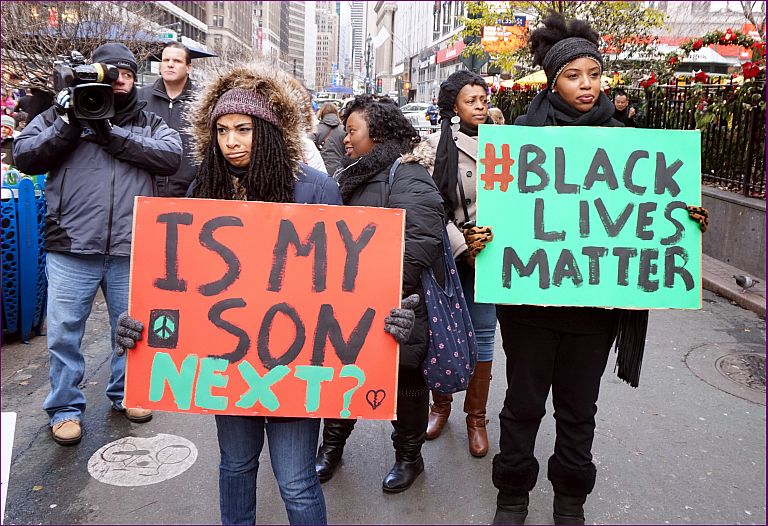A new wave of activism is rooted in a different spiritual tradition to the civil rights movement of the 1960s.
By Alexis Buchanan. Published 6-7-2016 by openDemocracy

NYC action in solidarity with Ferguson. Mo, encouraging a boycott of Black Friday Consumerism. Photo via Wikimedia Commons
Black Lives Matter (BLM) began in 2014 as a hashtag after the acquittal of George Zimmerman in the Trayvon Martin case and evolved into a social movement. Since its inception, it has grown to 28 chapters in over 17 states in the USA, and one international chapter in Toronto. There’s no denying that the movement wants to disrupt the status quo, and that makes some people angry. They have shut airports and stopped Black Friday sales with their protests against police brutality.
BLM have also interrupted several events on the current US Presidential campaign trail, including Hillary Clinton in February of 2016 and Bernie Sanders last year. And everyone has seen the violence that has erupted at Donald Trump events where Black Lives Matters protestors clashed with his supporters. BLM are described by some political candidates as a “mob,” or as “trouble,” or as “disgraceful.”

